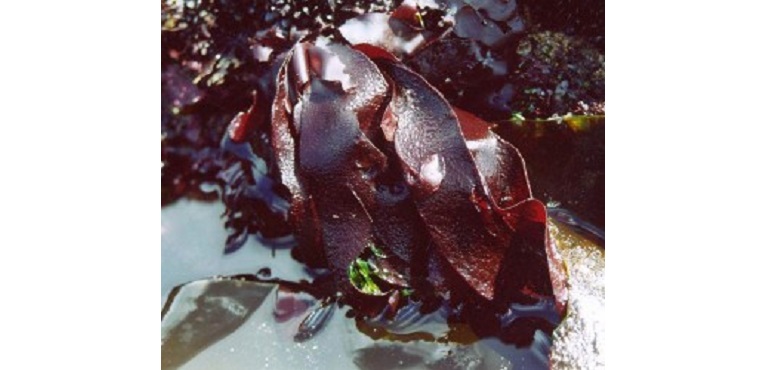
Research boost for Irish Seaweeds in food
Irish Seaweeds, the Northern Irish specialist in sea vegetables, has been boosted by new research showing that Dulse seaweed is packed full of protein and tastes like bacon.
Based in Belfast, Irish Seaweeds has been harvesting, drying and processing seaweed varieties especially Dulse (Palmaria Palmata) from the shoreline of the Strangford Lough conservation area for over 25 years.
Managing director Gus Hayes says: "We have long known that Dulse (whatever strain) when fried gently has the taste of bacon and is rich in proteins. We've been developing dulse for many years and exporting to customers in markets around the world."
The company developed a dried dulse pouch for healthy snacking or for use as a meal ingredient.
Dulse is now regarded as a super-food, with twice the nutritional value of kale, which is also good news for another Northern Irish artisan business, Abernethy Butter, which has launched handcrafted butter with dulse.
Irish Seaweeds works closely with Irish universities on research programmes that have led to the installation of an experimental "Seaweed Culture" farm on Strangford Lough, the first of its kind in Europe.
Oregon State University (OSU) researchers have patented a new strain of a succulent red marine algae - dulse - that grows extraordinarily quickly, is packed full of protein and tastes like bacon when it is cooked.
Dulse grows in the wild along the Atlantic and Pacific coastlines. It is harvested and usually sold in dried form as a cooking ingredient or nutritional supplement. But researcher Chris Langdon and colleagues at OSU's Hatfield Marine Science Center have created and patented a new strain of dulse - one he has been growing for the past 15 years.
This strain is an excellent source of minerals, vitamins and antioxidants - and it contains up to 16 percent protein in dry weight, Langdon said.
"The original goal was to create a super-food for abalone (a shellfish), because high-quality abalone is treasured, especially in Asia," Langdon added. "We were able to grow dulse-fed abalone at rates that exceeded those previously reported in the literature.
There always has been an interest in growing dulse for human consumption, but we originally focused on using dulse as a food for abalone."
Several chefs are now testing dulse as a fresh product and many believe it has significant potential in both its raw form and as a food ingredient.
There are no commercial operations that grow dulse for human consumption in the United States, according to Langdon. "In Europe, they add the powder to smoothies, or add flakes onto food," Langdon said. "There hasn't been a lot of interest in using it in a fresh form. But this stuff is pretty amazing. When you fry it, which I have done, it tastes like bacon, not seaweed. And it's a pretty strong bacon flavor."